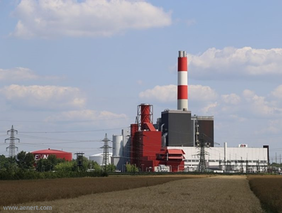The World Economic Forum – the leading and most respected international organization for public-private partnerships - has published a new study of 127 countries around the world on their energy supply capabilities in terms of security, accessibility and sustainability.
The methodology of the study includes 18 indicators divided into three thematic groups. In the first group, the influence of the energy architecture on economic growth is evaluated in terms of, for example, energy intensity, cost of energy imports, value of energy exports, electricity prices for industry.
The second group includes environmental indicators - alternative and nuclear energy (% of total energy use), CO2 emissions, methane emissions, nitrous oxide emissions and some others.
The third group includes indicators related to energy security, including such as electrification rate, diversity of total primary energy supply, import dependence. As a result, all 127 countries studied are ranked by the total number of points scored for each indicator.
Switzerland (score 0.80) became the leader of the current rating, the top-10 countries (in order of ranking) are: Norway, Sweden, Denmark, France, Austria, Spain, Colombia, New Zealand and Uruguay. Notably, leaders in group nominations may vary, especially in terms of “Economic growth and development”, where the leading positions, besides Switzerland, are occupied by Argentina, Peru, Cuba, Colombia and Luxembourg, and for such an indicator as “Environmental sustainability”, Sweden is 7th and the rest of the top-10 are located below.
The authors of this rating note in their comments that the top-20 is dominated by European countries. Only Colombia, Uruguay, New Zealand and Costa Rica are included in the top-20. Notably Uruguay, made its way into the top-20 gaining 15 positions over the last 8 years. At the same time, the aggregate average score for the top-20 countries was 0.74, while the average score of all participants in the rating was 0.61.
The countries with a high level of economic development, excluding France, do not perform at their best in this rating. Germany is 19th, Japan - 45th, USA – 52nd, China – 95th. The same applies to the countries rich in natural resources, such as Saudi Arabia - 128th, Iran – 120th, Russia – 48th, Canada – 32nd. In the appendix, the authors stress, that in terms of “Energy access and security” the average score of 28 EU countries was 0.84, while the average score for this group of indicators is 0.65, and the average score of the MENA countries is only 0.41.
Since 2009, the Global Energy Architecture Performance Index is characterized by a large number of multidirectional shifts of participants within the rating. The countries, that have improved the most were Jamaica and Nicaragua (gaining 24 and 23 positions respectively), at the same time Libya and Venezuela underwent the biggest decline (lost 38 and 32 positions respectively).
